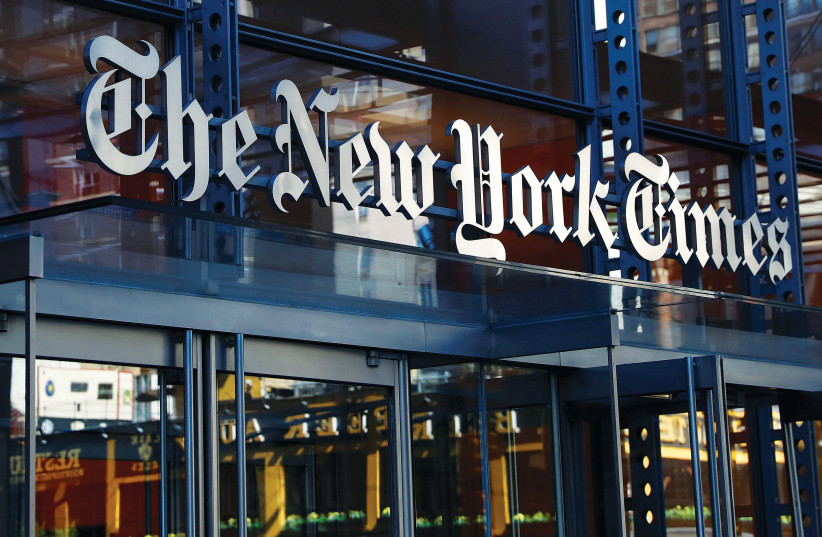Among the winners of the George Polk Awards is a journalist from The New York Times who is accused of infiltrating into Israel early in the morning of the October 7 massacres.
The journalist Yousef Masoud was awarded the prize along with another freelance Times photojournalist named Samar Abu Elouf.
Honest Reporting, a media watchdog NGO, highlighted his accreditation to a photo provided to the Associated Press, with the caption, “Palestinians wave their national flag and celebrate by a destroyed Israeli tank at the Gaza Strip fence east of Khan Younis southern Saturday, Oct. 7, 2023. The militant Hamas rulers of the Gaza Strip carried out an unprecedented, multi-front attack on Israel at daybreak Saturday, firing thousands of rockets as dozens of Hamas fighters infiltrated the heavily fortified border in several locations by air, land, and sea and catching the country off-guard on a major holiday.”
HonestReporting questioned Masoud’s explanation of his presence that he’d been woken up at 5.30 a.m. by rocket fire even though the firing only started an hour later.
The picture shows a man waving a Palestinian flag atop an Israeli tank. Masoud's name was included in an investigative report from November showing that journalists from leading news outlets, including The New York Times, AP, Reuters, and CNN, joined Hamas terrorists from the Gaza Strip on October 7 to document the events with their cameras.
The organization, which works to expose anti-Israel bias in the foreign press, raised heavy ethical questions in the investigation regarding the presence of those photographers alongside Hamas terrorists.

The NYT responded to the allegations by claiming, “The accusation that anyone at The New York Times had advance knowledge of the Hamas attacks or accompanied Hamas terrorists during the attacks is untrue and outrageous. It is reckless to make such allegations, putting our journalists on the ground in Israel and Gaza at risk.”
The NYT accused Honest Reporting of making “vague allegations” and continued that although Yousef Masoud was not working for the Times on that day, “he has since done important work for us. There is no evidence for Honest Reporting’s insinuations. Our review of his work shows that he was doing what photojournalists always do during major news events, documenting the tragedy as it unfolded."
The George Polk Awards
The George Polk Awards are prestigious awards for journalists, determined by Long Island University. The category Masoud and Elouf won in was for photojournalism. The organization said they won for “chronicling Israel’s bombardment and invasion of their homeland, Gaza. The two photographed the conflict from its opening hours on Oct. 7 until they escaped the territory exactly two months later.
Under harrowing circumstances, they captured gripping and unforgettable images. Of frightened children looking skyward toward an Israeli plane. Of bodies pulled from the rubble of flattened buildings. Of a little boy touching the bloodied face of his dead baby sister. And of the chaos of hospitals overwhelmed by dazed, gravely injured patients.”
Of the winners of the award, “This was easily one of the most contentious, polarizing stories in decades, yet our journalists in Israel, Gaza, and around the world stay focused on delving into every angle of the conflict with unflinching eyes,” said Greg Winter, International managing editor of The New York Times.
“They were empathetic to the suffering of the Israeli and Palestinian people but unsparing in their investigations.”
